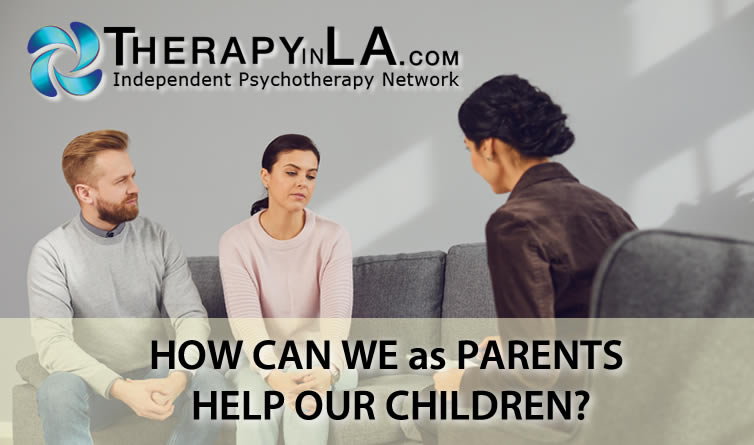
HOW CAN WE as PARENTS HELP OUR CHILDREN?
By Alan M. Solomon, Ph.D.
Dominic is a seven-year-old boy, second grade student in the local public school. Though very bright, curious about learning, and socially popular given his athletic skills on the playground, he struggles with school: unable to sustain his focus in class, being “wiggly” and restless about staying in his chair, sometimes disruptive with tangential comments, completing assignments but then often losing them or not turning them in. His desk in school is a disorganized “disaster” area with random papers stuffed into the cubby. There are similar issues at home, though not as troublesome since the home environment is less structured than school. By the end of second grade, his teacher is suggesting the parents seek some help, though Dominic’s father tends to minimize these concerns: “he’s all-boy, just like I was as a youngster”.
April is a 12-year-old seventh grader, also in public school, who has had increasing difficulties with her transition to middle school, starting in sixth grade. She’s more and more anxious about going to school, complains of more physical ailments (headaches, stomach upset, issues regarding menstruation that recently started) to keep her home, spending more time on the internet and isolating at home, along with more early adolescent argumentativeness with her parents. The transition to middle school last year meant April lost some friends she’d had throughout elementary school. April’s mother tends to be very sympathetic, even lenient, since she had similar struggles with early adolescence and middle school. An empathic English teacher questions whether some professional help might be in order.
An experienced therapist in each case fairly quickly could provide some diagnostic understanding: Attention Deficit Hyperactivity Disorder (ADHD), with some possible learning issues for Dominic since reading, spelling, and language arts skills were relatively weaker than math. April was experiencing some social anxiety, as well as more general anxiety, and some depression.
Both of these kids were amenable to and responsive to therapy, including some consideration of medication, especially for Dominic. But the more sensitive part of the situation involved what degree of parental involvement was needed. In both cases, some genetic component was in play: Dominic being somewhat like his Father who may have had undiagnosed and untreated ADHD as a youngster; April’s anxiety having an inherited component from her Mother’s side of the family.
Despite their best intentions and genuine efforts, both sets of parents had been less than effective in their own efforts to help their kids. The problematic issues were apparent at home, as well as in school. The school environment, structure, and expectations had simply brought them into more obvious contrast. Both sets of parents did not have all the skills needed to help their children, nor could they be expected to have those skills, actually. Really, being a parent is not taught anywhere in any systematic way; we all tend to figure it out as we go, intuitively, through trial and error, some reading perhaps, some chatting with friends (or supportive grandparents of the child, if they are available) about being a parent, maybe some general guidance from a pediatrician at times. But pediatricians are not child development experts, nor do they have generous time for counseling and supporting parents.
This is where parent education or counseling comes in: sessions with parents to help them more fully understand their child’s struggles, as well as strengths. And to develop more specialized parenting skills to intervene more successfully at home, as well as support their child’s functioning in school or in their social world. Using reinforcement strategies becomes essential to develop desirable behaviors, being able to empathically listen to their child (especially one like April), yet still establish expectations, boundaries and limits. Employing natural and logical consequences. These are all skills that can be taught and developed for parents to be more effective and truly helpful to their children. In fact, we devote more time and focused effort on learning to drive a car than we often do in our efforts to be caring and effective parents. And parenting skills are more complex in ways that require constant flexibility, adaptation, and adjustment as our kids naturally develop and change. What works with parenting a preschooler certainly doesn’t work with an early adolescent.
UC Davis has developed Parent-Child Interaction Therapy (PCIT), for example, for younger children up to the age of seven. Cognitive Behavioral principles can be taught to parents to provide containment and limit setting for children’s behavior as well as encourage desirable behavior. Although parents may ask psychologists to help their kids , the unspoken message is often, “Please fix my child.” Parental involvement is a crucial part of that process, so that the family truly supports the child’s progress and facilitates it at home, as well as out in the larger world. Helping a child to change in constructive ways often involves, even requires, that parents learn, change, and adapt as well.
Alan M. Solomon, Ph.D. is a clinical psychologist in private practice in Torrance, CA. A member of the Independent Psychotherapy Network, he can be reached at 310 539-2772 or dralanms@gmail.com Telehealth or in-person sessions are available.
Copyright 2022 by Alan M. Solomon, Ph.D.
